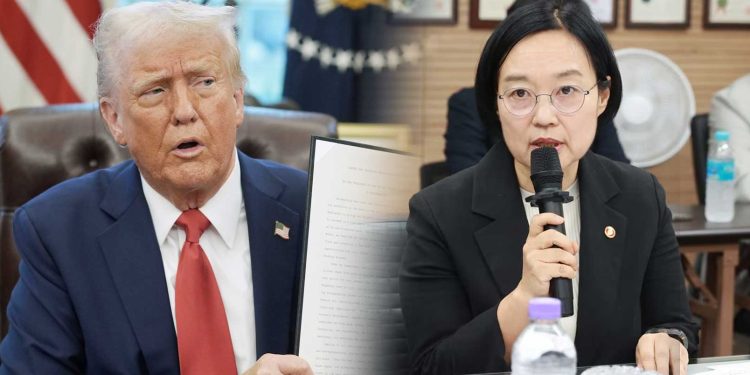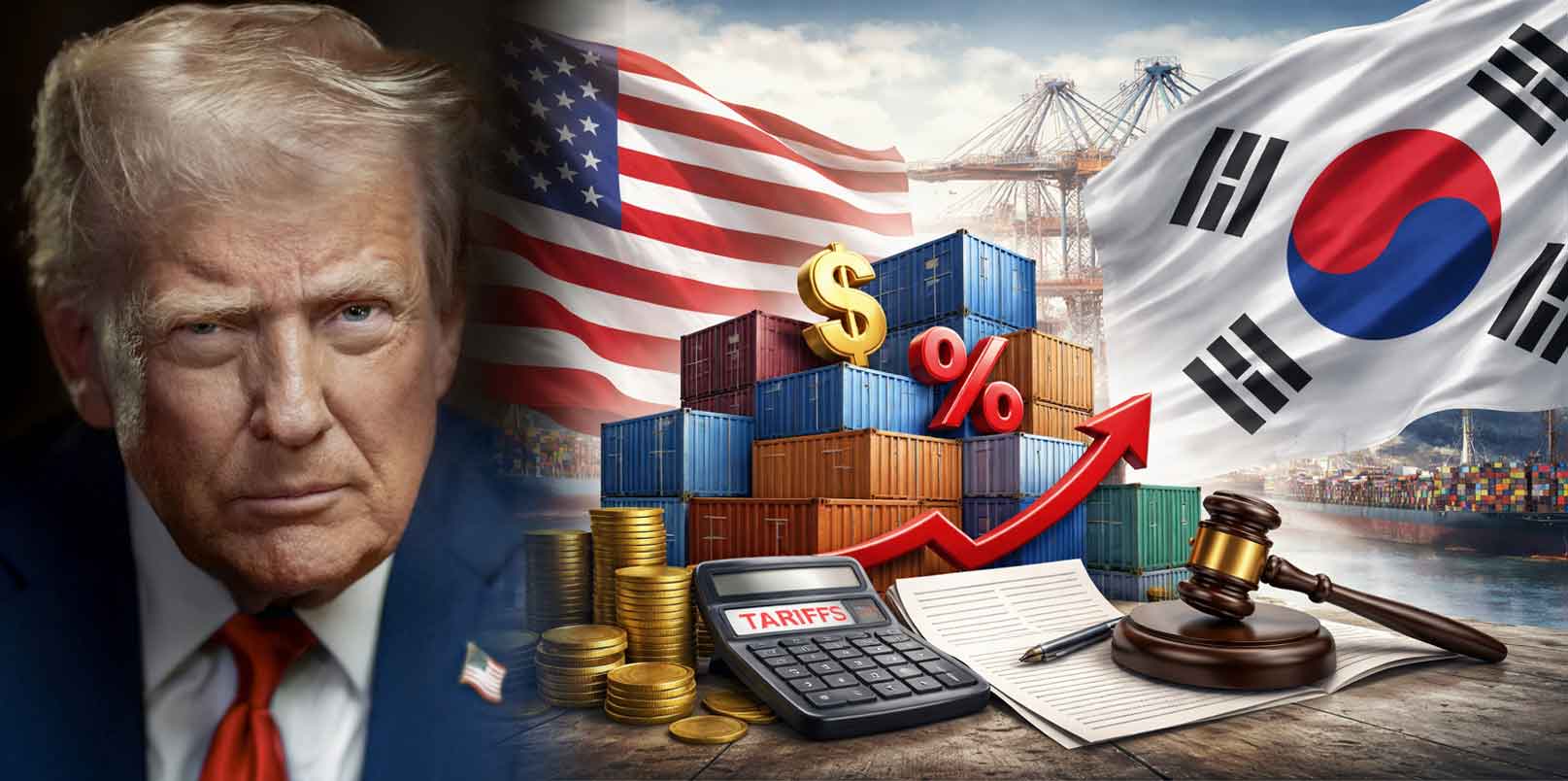South Korea is facing a new test in its online export economy. With the United States abolishing its de minimis tariff exemption for imports under $800, Korean SMEs — especially those exporting K-Beauty, K-Food, fashion, and lifestyle goods — are bracing for higher costs. The Ministry of SMEs and Startups (MSS) has responded with a plan that reframes this tariff pressure into an opportunity to strengthen SME competitiveness, expand digital platforms, and reduce logistics burdens.
MSS Convenes Online Export Roundtable
On September 24, Minister Han Seong-sook met with SMEs, platform operators, and logistics firms at Gwanghwamun Building in Seoul to address the issue.
The roundtable gathered exporters in beauty, fashion, food, and lifestyle, along with global partners such as Amazon, Shopee Korea, Olive Young, and logistics companies. Participants voiced concerns over rising costs, calling logistics as one of their most pressing challenges, and urged swift government support in marketing, platform entry, and freight relief.
Minister Han Seong-sook acknowledged the shift in trade conditions:
“With the recent elimination of the U.S. de minimis exemption, online exporters are operating in an increasingly unfavorable environment. We are exploring ways to ease the logistics burden, which exporters cite as their biggest obstacle.”
The ministry confirmed it will soon release a formal “SME Online Export Promotion Plan,” reflecting industry feedback gathered at the session.
U.S. De Minimis Abolition: What the Tariff Shift Means for Korean SMEs
The U.S. de minimis system had long allowed small parcels valued under $800 to enter tariff-free, a key advantage for SMEs selling directly through cross-border e-commerce. That advantage ended on August 29, 2025, when the Trump administration revoked the policy through executive order, citing concerns over tariff circumvention and restricted goods.
The abolishment of U.S. de minimis has resulted in significant cost implications, especially for Korean SMEs, which rely heavily on affordable shipping to access U.S. consumers. That is why without government intervention, higher customs charges and shipping fees risk dampening exports in sectors that have become synonymous with the global spread of K-culture.
Government’s Strategy: Logistics Relief and Platform Growth
MSS is preparing measures that go beyond short-term subsidies. Officials explained that consolidating shipments from multiple SMEs into bulk deliveries could reduce costs, and the ministry pledged support to organize such logistics solutions.
Lim Dong-woo, Director of Global Growth Policy at MSS, said:
“Since the abolition of the de minimis rule will increase export costs, we will help offset those costs through logistics support. By pooling shipments from multiple small businesses, we can reduce the unit cost of freight.”
Minister Han Seong-sook added that the strategy also involves strengthening Korea’s digital export infrastructure. This includes nurturing new domestic platforms, deepening cooperation with global platforms, and identifying promising export items for targeted government support.
She stressed,
“The online market has low entry barriers and relatively small risks, making it a valuable channel for SMEs seeking new markets and customers. We will focus our support on developing diverse platforms and discovering export items with strong global potential.”
De Minimis Abolition Impact: Korea’s SMEs Face Higher Costs — and New Growth Opportunities
This policy response highlights how Korea is seeking to turn external shocks into structured reforms rather than setbacks. Government-backed logistics relief could prove decisive in helping K-Beauty, K-Food, fashion, and lifestyle exporters sustain their global momentum despite new tariff costs.
At the same time, the initiative signals to international observers that Korea is working to build resilience in its export policy by combining immediate cost relief with long-term platform development.
By aligning more closely with global e-commerce practices, Korea positions itself to remain competitive in a market where logistics efficiency, platform access, and regulatory agility are becoming just as critical as product innovation.
What Comes Next in Korea’s Online Export Policy
The Ministry of SMEs and Startups is expected to unveil its “SME Online Export Promotion Plan” in the coming weeks. The plan will integrate logistics relief, platform development, and targeted marketing support for promising export categories. After all, Korean SMEs have been facing imminent crisis and vulnerabilities following the changes in the U.S. tariffs.
While the removal of de minimis rule could have been a setback, Korea’s swift response illustrates a broader intention in turning U.S. tariff pressure into a structured growth policy that strengthens Korea’s global startup and SME ecosystem.
🤝 Looking to connect with verified Korean companies building globally?
Explore curated company profiles and request direct introductions through beSUCCESS Connect.
– Stay Ahead in Korea’s Startup Scene –
Get real-time insights, funding updates, and policy shifts shaping Korea’s innovation ecosystem.
➡️ Follow KoreaTechDesk on LinkedIn, X (Twitter), Threads, Bluesky, Telegram, Facebook, and WhatsApp Channel.






